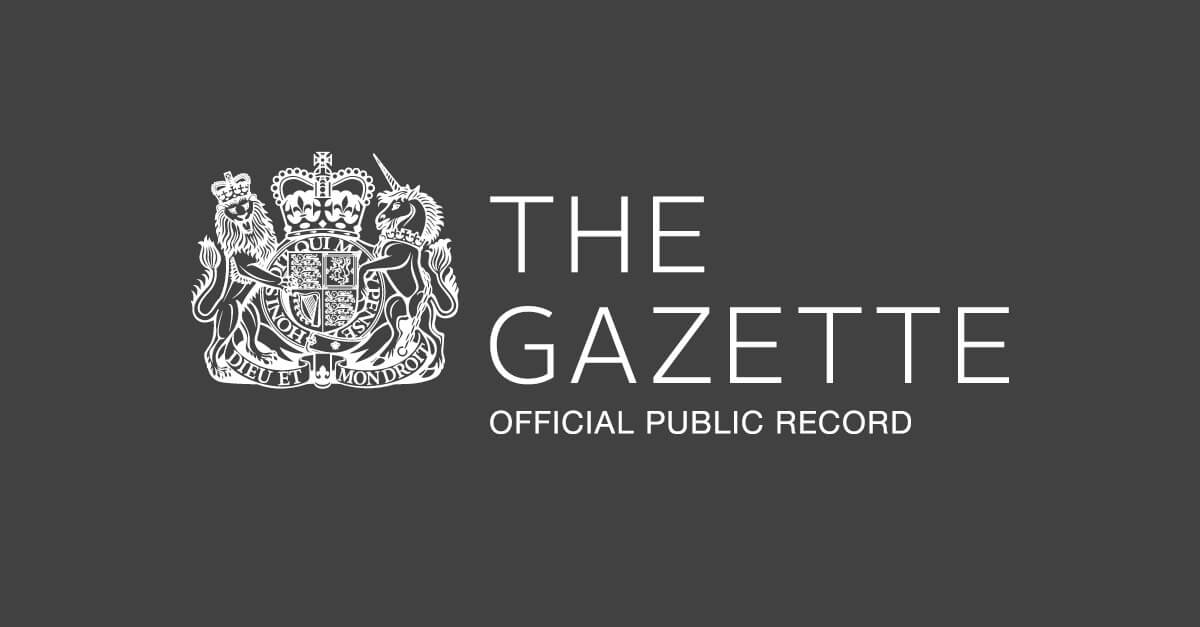A Detailed Evaluation of the Legal Responsibilities Surrounding Gazette Notification Publication
The world of gazette notification magazine is a maze of legal details that demand precise interest. As we untangle the layers of lawful obligations bordering gazette notification publication, a comprehensive analysis is critical to grasp the gravity of these obligations and the ramifications of falling short to stick to them.
Lawful Needs for Gazette Notifications

Lawful needs for Gazette notices dictate the details criteria that need to be met for the publication of main notifications in the Gazette. These demands are crucial to make sure openness, liability, and legal credibility in the dissemination of information to the general public. One key demand is the precise and full disclosure of details in the notification. This consists of details such as names, dates, addresses, and any type of other pertinent specifics that are necessary for the notification to be useful and actionable.
Furthermore, legal demands typically mandate the timely submission of notifications to the Gazette. Timeliness is critical to guarantee that the information reaches the intended recipients within a reasonable timeframe, permitting them to take required actions or make informed decisions quickly. Failure to comply with these timelines may lead to legal consequences or render the notification inadequate.

Implications of Non-Compliance
Stopping working to stick to the prescribed requirements for Gazette notification publication can cause considerable repercussions. Non-compliance with the policies set forth for Gazette notification magazine can lead to lawful consequences, financial fines, and reputational damages for the entity or private in charge of the publication. Failing to release notices in the Gazette within the specified duration or inaccurately sharing details can cause difficulties in enforcing civil liberties, contractual commitments, or lawful procedures. Non-compliance may weaken the openness and liability of the publication procedure, possibly wearing down public trust fund in the details provided in the Gazette. Furthermore, falling short to fulfill the lawful commitments surrounding Gazette notification magazine might cause the invalidation of the notification itself, providing it legitimately ineffective. It is crucial for organizations and people mandated to publish notifications in the Gazette to vigilantly follow the recommended requirements to prevent these adverse implications and support the honesty of the publication procedure.
Key Regulation Governing Publication
Given the vital ramifications of non-compliance with Gazette notice publication requirements, understanding the key legislation controling this procedure is paramount for ensuring legal adherence and preserving transparency. The primary regulation regulating publication requirements in numerous jurisdictions is the Government Gazette Act (gazette notice for compulsory strike-off). This Act lays out the treatments and guidelines for publishing main notices, ensuring that details reaches the general public in a timely and accessible fashion. Furthermore, particular fields may have their own guidelines concerning notification magazine, such as environmental agencies calling for certain announcements to be revealed for openness and responsibility purposes. Recognizing these legal frameworks is vital for organizations and people accountable for providing Gazette notices to stay clear of legal effects and maintain the principles of excellent governance. By adhering to the crucial regulation regulating publication, entities can show their commitment to running within the bounds of the legislation and supporting the autonomous worths of visibility and accountability.
Entities Obligated to Publish Notices
Entities in charge of the publication of Gazette notices play an important function in making sure transparency and lawful conformity within the structure of governmental policies. Typically, these entities include government departments, governing bodies, and main gazette offices. Government divisions are frequently tasked with publishing notifications relating to brand-new legislations, policies, policies, and public announcements to educate people and various other stakeholders regarding changes that might influence them. Regulative bodies, on the other hand, are accountable for releasing notifications associated with licensing, compliance needs, enforcement actions, and various other governing issues within their particular industries. Authorities gazette workplaces work as the key platforms for the publication of lawful notifications at the national, state, or neighborhood degrees, guaranteeing that such information their website comes to the general public.
These entities are bound to release notices promptly and accurately to comply with lawful requirements and support the concepts of openness and liability in governance. Failure to publish necessary notices in a timely check here fashion could lead to legal consequences, threatening the reliability and efficiency of the governing framework. For that reason, it is crucial for these entities to accomplish their obligations carefully to maintain public trust fund and ensure that stakeholders are informed of important legal advancements.
Best Practices for Compliance
To guarantee adherence to legal responsibilities surrounding Gazette notice magazine, it is imperative for organizations to implement finest practices for compliance that improve openness and responsibility in disseminating essential details to stakeholders. Among the essential ideal practices is to develop clear interior procedures and guidelines for Gazette notification magazine. This consists of assigning obligation to details individuals or departments, establishing timelines for drafting and reviewing notifications, and guaranteeing compliance with publication needs.

Final Thought
In final thought, recognizing the lawful responsibilities bordering gazette notice publication is necessary for entities to conform with key regulation. Failure to release notifications in the gazette can have significant ramifications, including lawful consequences.